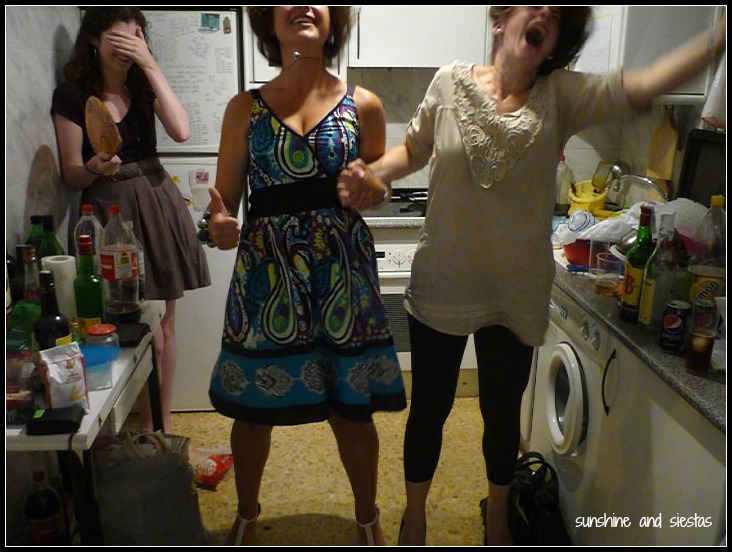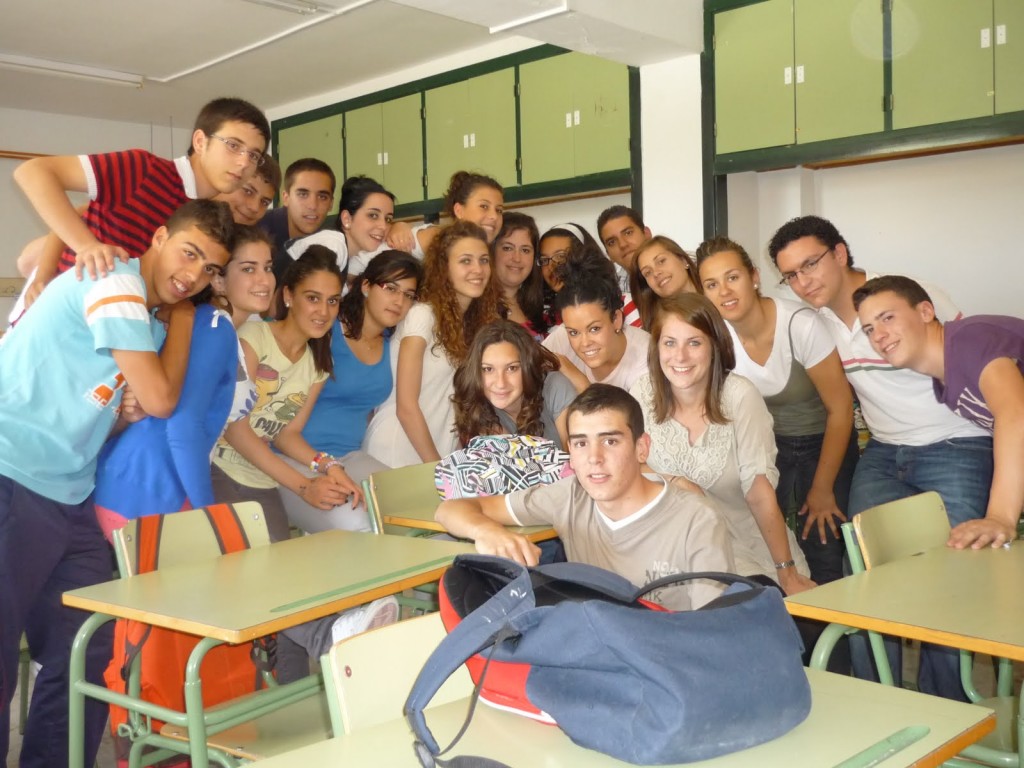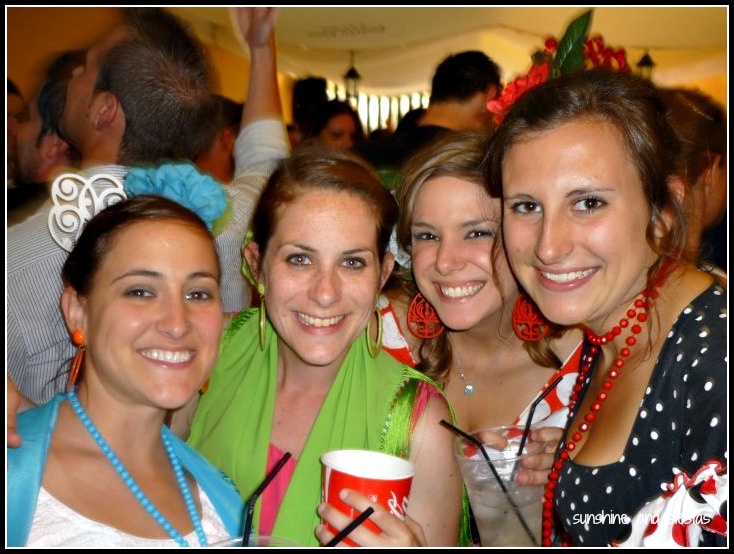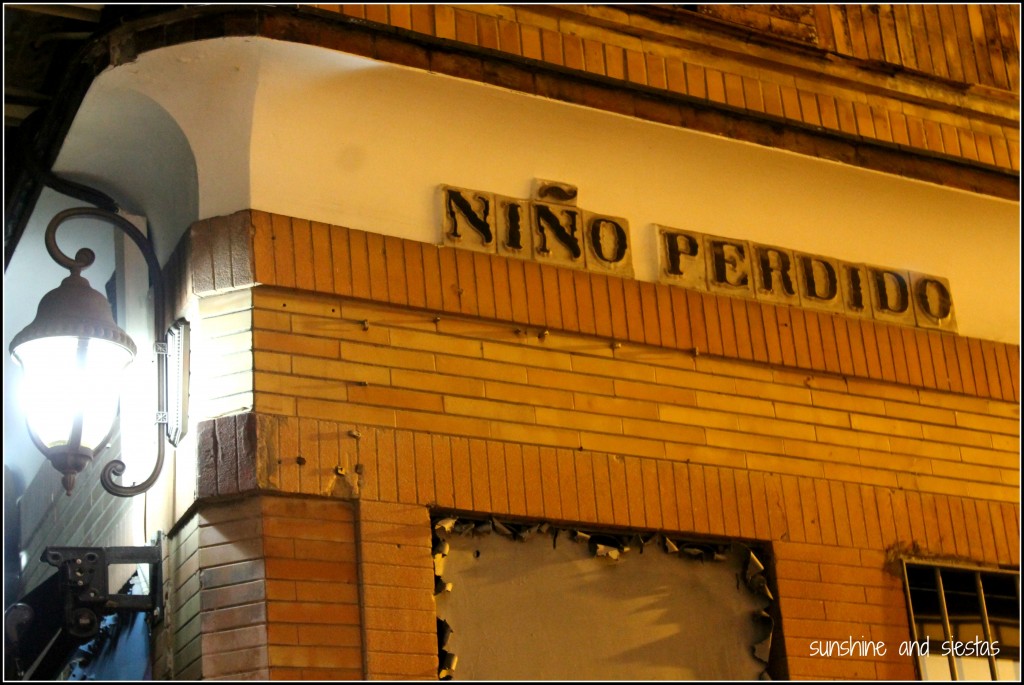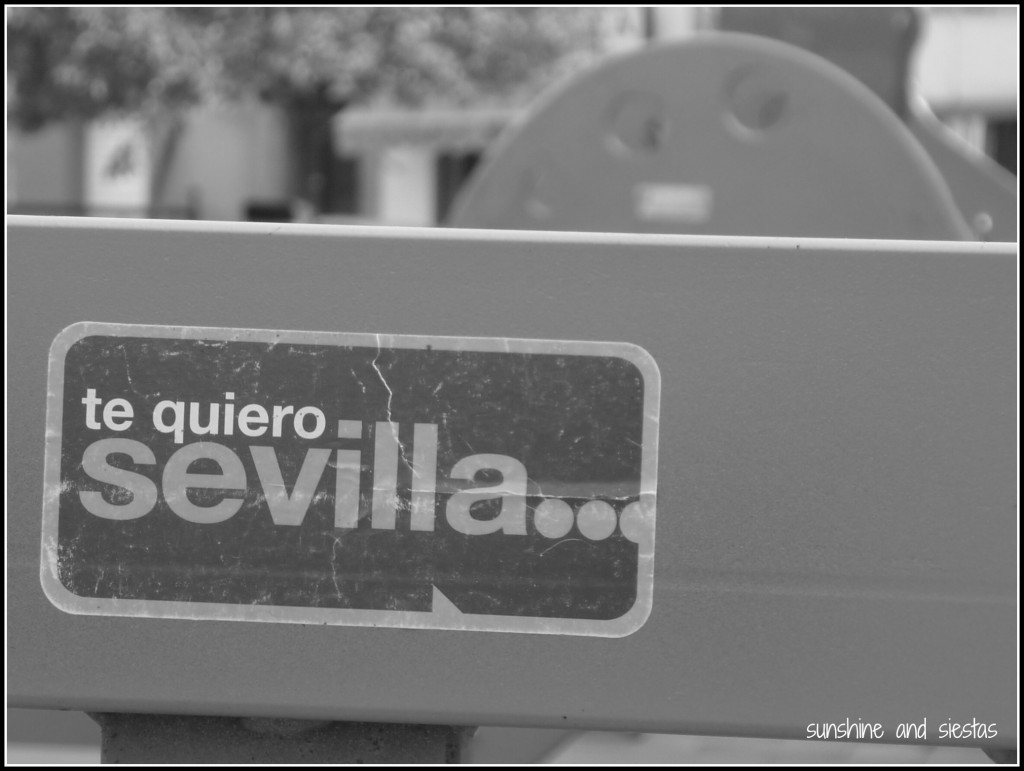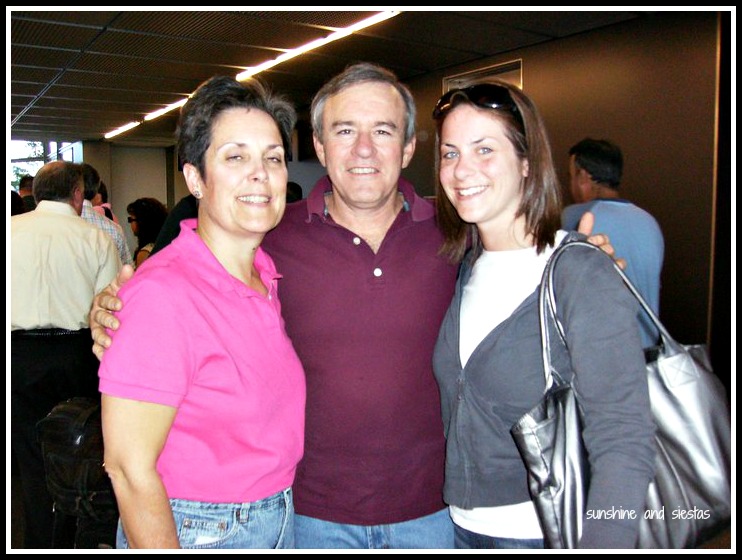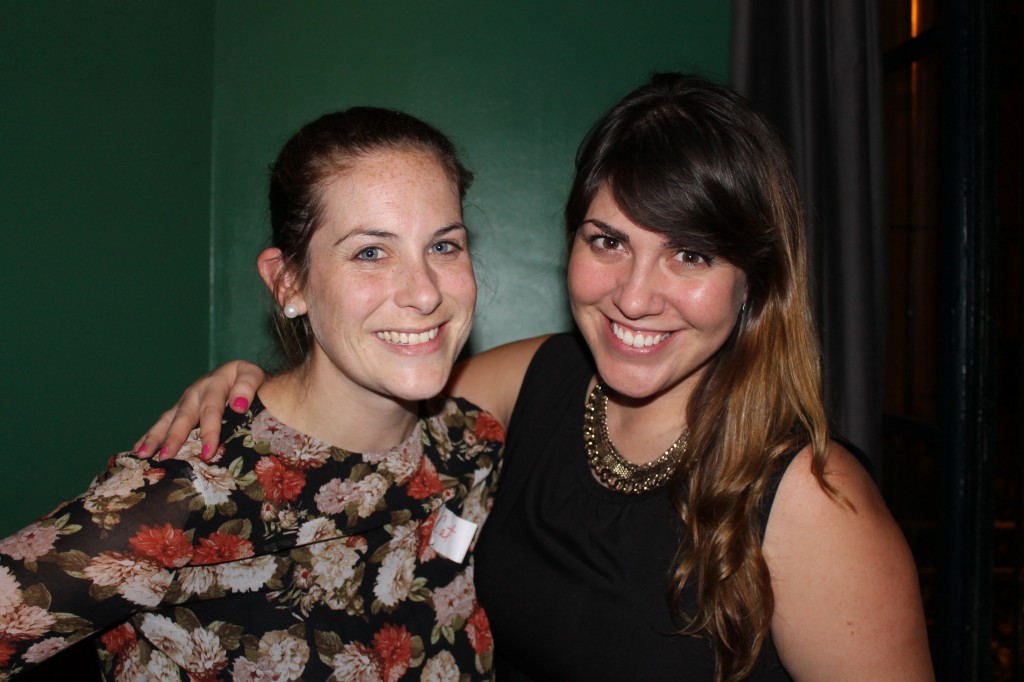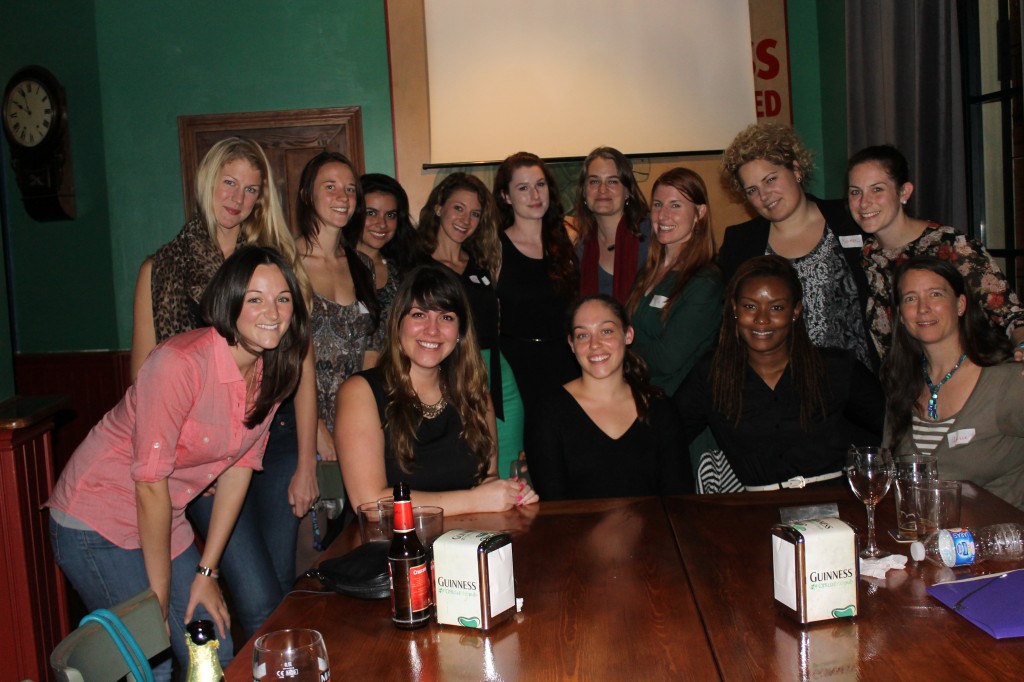It always creeps up on me – whether it’s seeing the plastic grocery bags and hearing the clinking of bottles from within on Thursday night as I ride home from the academy, or passing the trendy bars from which people overflow, gintoncitos in hand, onto the sidewalk in El Arenal.
Sigh. Nostalgia always gets to me.
My life as an expat and guiri in Spain has seen its up and its downs. For several years, Spain was a momentary pause between college and real life, a hiccup of time to travel, learn Spanish and enjoy my early 20s.
Then Spain became my long-term plan, and things changed.
Just last week, the Novio and I were talking about looking for a house to eventually start a family. In talking numbers, mortgages and neighborhoods, I had to tell my head to stop spinning. What happened to renting and dealing with ugly, heavy furniture and noisy roommates and hustling to pay the Internet bill?
Did I grow up that fast? Surely I didn’t do it overnight, but when did I start to feel so….adult?
Danny and Javi visited at the end of February, and Javi caught me off guard when he asked, “Do you miss your life as an auxiliar de conversación?” over a plate of croquetas. Without even thinking about it, I said no. Turns out, Danny does.
I got to thinking about it while they had a siesta later that afternoon. Did I miss working 12 hours a week as a job where I didn’t do much but speak in English to a bunch of teens and take advantage of a few free coffees a week?
Well, yes and no.
Did I miss having a job that was fun and carried little responsibility?
Yes and no.
Did I miss having my afternoons free for siestas, flamenco class and coffee with the Novio? Hell yes.
Did I miss fretting over whether or not my private classes would cancel on me and leave me without money enough for groceries and bus rides? Hell no.
The first three years in Seville were some of my best. I made friends from around the world, spent my many long weekends lugging a backpack on overnight bus rides and budget flights, stayed out until the sun came up or my feet couldn’t take it anymore. It was my second shot at studying abroad and at squeezing another year out of “learning” as if Spain were my super senior year.
Dios, was it fun. I remember so fondly those afternoon beers that turned into breakfast the next morning, the nights in with giggles, the Guiri Whoa moments. And the hard, hard goodbyes.
But the first three years in Seville were also marred with problems and annoyances: I had to live with roommates, learn to light a bombona, factor shoes into my budget and live off of dry pasta and tomate frito. The Novio and I broke up. I struggled with knowing if Spain was a good idea or a waste of my time. I was doing a job that was easy, yes, but not as fulfilling as I had hoped.
All of those soaring highs were met with desolate lows. I had to decide to love it or leave it.
Making the decision to spend the rest of my life in Spain meant my days went from siesta and fiesta to frantically looking for a job and spending wisely. Then came nóminas, afiliación a la seguridad social, pareja de hecho, car insurance, sick pay and all of those other “adult” words.
I was living my dream of becoming fluent in foreign bureaucrazy and those of becoming a champion siesta taker seemed to fade away. I had made the transition from language assistant to a full-fledged member of the work force practically unscathed (but very, very poor).
As I adjusted to a full-time schedule and work commitments, I began to miss the old me, the girl who never turned down plans for fear of missing out, who would leave on the next bus out-of-town on a whim. Friday night became catch-up-on-sleep night, and Sundays were devoted to lesson planning. I began to lose sight of the things that were important to me and took out my angst on everyone from my students to my suegra.
Something wasn’t right, and I needed to make a change.
I found myself longing for the Spanish life I had before the private school, even with the stress over money and friends and language and life direction. I wanted to enjoy going out and enjoying Seville without just going through the motions.
So I chose. I chose a pay cut and an arguably less prestigious job and the uncertainty of the job market in the throes of a financial crisis. I chose to be happy and to open myself up to other opportunities, lest it be too late. Even with a master’s and a job and a blog and a boyfriend, I managed to regain a sense of myself and purpose. I realized that I end up setting my own limits for work, relationships and happiness.
Life continues as normal for me, six years after moving to Seville. When I pine to not be tired at midnight and to live close to the action of the city center, I remember everything that came along with it: language frustrations, scrounging for money, sharing a flat, drinking cheap and terrible liquor and eating cheap and terrible food.
I finally have a work-life balance that I craved during the first five years I lived here. Like Goldilocks, it seems I finally have found what is just right.
I may miss the carefree days where I could siesta for three hours and never have to worry about what to do on the weekends but how to fit it all in and under budget, I freaking miss my friends.
but at 28, it’s not me anymore.Whenever the pangs of nostalgia hit, they’re quickly quelled when I reflect back on how much I’ve accomplished, how much of the world I’ve seen for choosing plane tickets over drink tickets, and remember that I’m where I intended to end up.
Do you get nostalgic for your study abroad days or college days? How do you cope?
